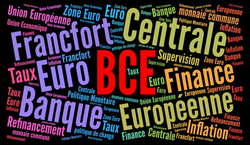Food for thoughts
Compliance and Regulation Law bilingual Dictionnary

The term "breach" is new in Law. In the legal order, the term "fault" is that which is retained to designate the behavior of a person who deviates from a rule and must be sanctioned, because by this act he has manifested a fraudulent intention which may is reproached to him. But the legal notion of fault, which was central in the classic Law of civil liability and was essential in criminal liability Law has the major drawback of calling for proof: that of the intention to "do wrong". This seems all the less adequate when it comes to assessing the behavior of organizations, such as companies, whose behavior and power must be controlled more than the faulty behavior of their leaders sanctioned.
This is why both to lighten the burden of proof concerning natural persons, in particular those with the power and the function of deciding for others (managers, "senior executives") and to better correspond to the distribution of the power of The action, which is now held by organizations, in particular companies, are "failures" and no longer faults or negligence which constitute the triggering events triggering their liability or justifying repression.
It is more particularly an administrative repression, the end of which is not to sanction misconduct but to effectively protect the regulated sectors. The sanction for breaches is therefore both easier, because it is always necessary to prove the intention, and more violent, because the sanctions attached can relate to a share of the profits withdrawn, to a share of the turnover. business of the operator or can take the form of commitments by the operator for the future, a very restrictive and new form of sanction that the compliance technique has inserted into the law.
Thus the breach can be defined as a behavior, even an organization which is away from the behavior or the situation that the author of a text has posed as being that which he posits as adequate. This definition, which is at the same time broad, abstract, teleological and prescription, which makes it possible to apprehend not only behaviors but also structures, makes the sanction of breaches a daily tool of Regulatory Law.
Thesaurus : Soft Law
Référence complète : Gauvain, R. et Marleix, O., Rapport d'information sur l'évaluation de l'impact de la loi n° 2016-1691 du 9 décembre 2016 relative à la transparence, à la lutte contre la corruption et à la modernisation de la vie économique, 2021.
____
________
Teachings : Generall Regulatory law

Retourner à la présentation générale du Cours.
Cette bibliographie générale rassemble quelques références générales, qui se superposent ou croisent les bibliographies plus spécifiques sur :
- Doctrine (par ordre alphabétique), la présentation distinguant quelques ouvrages généraux avant de répertorie des études pertinentes pour comprendre le "Droit commun de la Régulation"
- Textes de droit international, textes de systèmes juridiques étrangers,textes de l'Union européennes, textes de droit français
- Littérature grise
Thesaurus : Doctrine
Référence complète : Lalande, P.-A., Le pouvoir d’injonction au service de la réparation du préjudice écologique : une mise en œuvre de l’office du juge administratif en matière climatique, Actu-Juridique, 9 décembre 2021.
____
_____
Thesaurus : Doctrine

Référence complète : Terré, F., Concurrence et proportionnalité, in Parléani, G. (coord.), Mélanges en l'honneur du Professeur Claude Lucas de Leyssac, LexisNexis, novembre 2018, pp.467-471.
____
Lire une présentation générale des Mélanges dans lesquels l'article a été publié.
____
Thesaurus : Doctrine
Référence complète : Boy, , "Réflexion sur le "droit de la régulation". A propos du texte de Marie-Anne Frison-Roche", D., chron., 2001, p.3031 et s.
____
Thesaurus : Doctrine
Référence complète : Queinnec, Y et Constantin, A., Devoir de vigilance. Les organes de gouvernance des entreprises en première ligne, in Le Big Bang des devoirs de vigilance ESG : les nouveaux enjeux de RSE et de droit de l'homme, doss., Revue Lamy Droit des Affaires, n°104, mai 2015, p.68-74.
____
Thesaurus : Doctrine

► Full Reference: Segonds, M., Compliance, Proportionality and Sanction. The example of the sanctions taken by the French Anticorruption Agency, in Frison-Roche, M.-A. (ed.),Compliance Monumental Goals, series "Compliance & Regulation", Journal of Regulation & Compliance (JoRC) and Bruylant, to be published.
___
► Article Summary: Before devoting the developments of his article to the sole perspective of sanctions imposed under "Anti-corruption Compliance", the author recalls in a more general way that, as is the sanction, Compliance is in essence proportional: Proportionality is inherent to Compliance as it conditions any sanction, including a sanction imposed under Compliance.
This link between Proportionality and Compliance has been underlined by the French Anti-Corruption Agency (Agence française anticorruption - AFA) with regard to risk mapping, which must measure risks to arrive at effective and proportional measures. This same spirit of proportionality animates the recommendations of the AFA which are intended to apply according to the size of the company and its concrete organisation. It governs sanctions even more, in that punitive sanctions refer on one hand to Criminal Law, centered on the requirement of proportionality. Punitive sanctions It governs sanctions even more, in that punitive sanctions refer on the other hand to the disciplinary power of the manager who, from other sources of law, must integrate the legal requirement of proportionality when he/she applies external and internal compliance norms.
____
_______
Thesaurus : Doctrine

► Full Reference: R. Sève, "Compliance Obligation and changes in Sovereignty and Citizenship", in M.-A. Frison-Roche (ed.), Compliance Obligation, Journal of Regulation & Compliance (JoRC) and Bruylant, "Compliance & Regulation" Serie, to be published
____
📘read a general presentation of the book, Compliance Obligation, in which this article is published
____
► Summary of the article (done by the Journal of Regulation & Compliance - JoRC):
The contribution describes "les changements de philosophie du droit que la notion de compliance peut impliquer par rapport à la représentation moderne de l’Etat assurant l’effectivité des lois issues de la volonté générale, dans le respect des libertés fondamentales qui constituent l’essence du sujet de droit." ("the changes in legal philosophy that the notion of Compliance may imply in relation to the modern representation of the State ensuring the effectiveness of laws resulting from the general will, while respecting the fundamental freedoms that constitute the essence of the subject of law").
The contributor believes that the definition of Compliance is due to authors who « jouer un rôle d’éclairage et de structuration d’un vaste ensemble d’idées et de phénomènes précédemment envisagés de manière disjointe. Pour ce qui nous occupe, c’est sûrement le cas de la théorie de la compliance, développée en France par Marie-Anne Frison-Roche dans la lignée de grands économistes (Jean-Jacques Laffont, Jean Tirole) et dont la première forme résidait dans les travaux bien connus de la Professeure sur le droit de la régulation. » ( "play a role in illuminating and structuring a vast set of ideas and phenomena previously considered in a disjointed manner. For our purposes, this is certainly the case with the theory of Compliance, developed in France by Marie-Anne Frison-Roche in the tradition of great economists (Jean-Jacques Laffont, Jean Tirole) and whose first form was in her well-known work on Regulatory Law").
Drawing on the Principles of the Law of the American Law Institute, which considers compliance to be a "set of rules, principles, controls, authorities, offices and practices designed to ensure that an organisation conforms to external and internal norms", he stresses that Compliance thus appears to be a neutral mechanism aimed at efficiency through a move towards Ex Ante. But he stresses that the novelty lies in the fact that it is aimed 'only' at future events, by 'refounding' and 'monumentalising' the matter through the notion of 'monumental goals' conceived by Marie-Anne Frison-Roche, giving rise to a new jus comune. Thus, "la compliance c’est l’idée permanente du droit appliquée à de nouveaux contextes et défis." ("Compliance is the permanent idea of Law applied to new contexts and challenges").
So it's not a question of making budget savings, but rather of continuing to apply the philosophy of the Social Contract to complex issues, particularly environmental issues.
This renews the place occupied by the Citizen, who appears not only as an individual, as in the classical Greek concept and that of Rousseau, but also through entities such as NGOs, while large companies, because they alone have the means to pursue the Compliance Monumental Goals, would be like "super-citizens", something that the digital space is beginning to experience, at the risk of the individuals themselves disappearing as a result of "surveillance capitalism". But in the same way that thinking about the Social Contract is linked to thinking about capitalism, Compliance is part of a logical historical extension, without any fundamental break: "C’est le développement et la complexité du capitalisme qui forcent à introduire dans les entités privées des mécanismes procéduraux d’essence bureaucratique, pour discipliner les salariés, contenir les critiques internes et externes, soutenir les managers en place" ("It is the development and complexity of capitalism that forces us to introduce procedural mechanisms of a bureaucratic nature into private entities, in order to discipline employees, contain internal and external criticism, and support the managers in place") by forcing them to justify remuneration, benefits, and so on.
Furthermore, in the words of the author, "Avec les buts monumentaux, - la prise en compte des effets lointains, diffus, agrégés par delà les frontières, de l’intérêt des générations futures, de tous les êtres vivants - , on passe, pour ainsi dire, à une dimension industrielle de l’éthique, que seuls de vastes systèmes de traitement de l’information permettent d’envisager effectivement." ("With the Monumental Goals - taking into account the distant, diffuse effects, aggregated across borders, the interests of future generations, of all living beings - we move, so to speak, to an industrial dimension of ethics, which only vast information processing systems can effectively envisage").
This is how we can find a division between artificial intelligence and human beings in organisations, particularly companies, or in decision-making processes.
In the same way, individual freedom does not disappear with Compliance, because it is precisely one of its monumental goals to enable individuals to make choices in a complex environment, particularly in the digital space where the democratic system is now at stake, while technical mechanisms such as early warning will revive the right to civil disobedience, invalidating the complaint of "surveillance capitalism".
The author concludes that the stakes are so high that Compliance, which has already overcome the distinctions between Private and Public Law and between national and international law, must also overcome the distinction between Information and secrecy, particularly in view of cyber-risks, which requires the State to develop and implement non-public Compliance strategies to safeguard the future.
____
🦉This article is available in full text to those registered for Professor Marie-Anne Frison-Roche's courses
________
Compliance and Regulation Law bilingual Dictionnary

The procedural guarantees from which the person benefits are mainly the right of action, the rights of defense and the benefit of the adversarial principle.
While the rights of the defense are subjective rights which are advantages given to the person at risk of having his situation affected by the decision that the body which is formally or functionally legally qualified as a "tribunal", may take, the adversarial principle is rather a principle of organization of the procedure, from which the person can benefit.
This principle, as the term indicates, is - as are the rights of the defense - of such a nature as to generate all the technical mechanisms which serve it, including in the silence of the texts, imply a broad interpretation of these.
The adversarial principle implies that the debate between all the arguments, in particular all the possible interpretations, is possible. It is exceptionally and justified, for example because of urgency or a justified requirement of secrecy (professional secrecy, secrecy of private life, industrial secrecy, defense secrecy, etc.) that the adversarial mechanism is ruled out. , sometimes only for a time (technique of deferred litigation by the admission of the procedure on request).
This participation in the debate must be fully possible for the debater, in particular access to the file, knowledge of the existence of the instance, the intelligibility of the terms of the debate, not only the facts, but also the language (translator, lawyer , intelligibility of the subject), but still discussion on the applicable legal rules). So when the court automatically comes under the rules of Law, it must submit them to adversarial debate before possibly applying them.
The application of the adversarial principle often crosses the rights of the defense, but in that it is linked to the notion of debate, it develops all the more as the procedure is of the adversarial type.
Compliance and Regulation Law bilingual Dictionnary

A Central Bank is for the Law a rather mysterious object.
Despite what some competition authorities have said, it is not an ordinary bank. It is at the root of monetary creation and its primary mission is to fight against inflation, contributing more or less directly and in a more or less independent way according to political and legal systems to the economic policy pursued by governments.
Thus, while central banks all have constitutional status which guarantees autonomy, they have a more limited mission in Europe than in the United States. This is even more evident since monetary cre - ation has been transferred to the European Central Bank (ECB), which makes it even more necessary to interpret what the Central Bank can do, Reminded the Court of Justice of the European Union (CJEU) in 2015 of the ECB's non-conventional monetary policy programs.
The central bankers either directly by a department or indirectly by an independent administrative authority (IAA) backed by them and who, although independent, have no legal personality with regard to them ( for example in the French system concerning the " Autorité de contrôle prudentiel et de resolution - ACPR) exercises regulatory and supervisory powers over the banking and insurance sectors.
As such, they are regulators. When en Europe the power to create money has been taken away from them, passing from the Member States to the European Central Bank (ECB) through the Euro Zone, it is this regulatory and supervisory power which remains their own, their mission being only to participate in the European collective mechanism.
But for exercising its regulatory and supervisory role, the central bankers have considerable powers, including approval, sanction and, since 2013 and 2014, resolution. But in this respect it must be considered that, in particular with regard to the European Convention on Human Rights, central bankers are like courts and in the exercise of numerous powers, procedural guarantees must be conferred on operators who are the object of those powers.
Teachings : Droit de la régulation bancaire et financière - semestre 2022

Le plan des 6 cours d'amphi est en principe actualisé chaque semaine au fur et à mesure que les cours se déroulent en amphi.
S'il s'avère que la crise sanitaire conduit à ramasser la mise à disposition de l'ensemble du cours en début de semestre, cette actualisation ne sera pas possible.
Cela sera alors compensé par l'envoi en courriel tout au long du semestre d'actualités commentées liées à la matière.
____
Voir le plan ci-dessous⤵
Compliance and Regulation Law bilingual Dictionnary

In Europe, Community Law prohibits States from providing aid to companies, which are analyzed as means for the benefit of their country which the State cares about (and sometimes wrongly) having the effect and maybe the object of maintaining or constructing borders between peoples, thus contradicting the first European political project of a common area of peace and exchanges between the peoples of Europe. That is why this prohibition does not exist in the United States, since Antitrust Law is not intended to build such a space, which is already available to businesses and people.
This essential difference between the two zones changes industrial policies because the US federal Government can help sectors where Member States can not. The European prohibition of State Aid can not be called into question because it is associated with the political project of Europe. This seems to be an aporia since Europe is handicapped against the United States.
In any form it takes, Aid is prohibited because it distorts equality of opportunity in competition between operators in the markets and constitutes a fundamental obstacle to the construction of a unified European internal market. On the basis of this simple principle, a branch of technical and specific law has developed, because States continue to support their entreprises and sectors, and many rules and cases divide this principe of prohibition into as many exceptions and nuances. Is built over the years a probation system related to it. Thus, the concept of a public enterprise was able to remain despite this principle of prohibition.
But if there is a crisis of such a nature or magnitude that the market does not succeed by its own forces to overcome and / or the European Union itself pursues a-competitive objectives, exogenous Regulation, which can then take the form of legitimate State Aid. Thus a sort of synonymy exists between State Aid and Regulation.
For this reason, the European institutions have asserted that State Aid becomes lawful when it intervenes either in strategic sectors, such as energy production in which the State must retain its power over assets, or the defense sector. Far from diminishing, this hypothesis is increasing. European Union Law also allows the State to intervene by lending to financial operators threatened with default or already failing, the State whose function is to fight systemic risk, directly or through its Central Bank. The aid can come from the European Central Bank itself helping States in issuing sovereign debt, the Court of Justice having admitted in 2015 the non-conventional monetary policy programs compliance with the treaties. In 2010, the European Commissioner for Competition stressed that public aid is essential tools for States to deal with crises, before regulations come to the fore in 2014 to lay the foundations of the European Banking Union.
Compliance and Regulation Law bilingual Dictionnary

The Federal Communications Commission (FCC) is the independent regulatory authority in the United States that regulates at the federal level both the container and the content of telecommunications.
In this, the United States differs from the European Union, a legal space in which most often the regulatory institutions of the container and the content are distinct (for example in France ARCEP / CSA / CNIL) and in which the regulations of communications remain substantially at the level of the Member States of the Union.
Like other audiovisual regulators, it ensures pluralism of information by limiting the concentration of capital - and therefore of power - in the television and radio sector. We can thus see that the American system is not in principle different from the European system.
In addition, the FCC is characterized first of all by a very great power, imposing at the same time substantial principles on the operators, like that of the "decency", going in the name of this principle until sanctioning television channels which had let show a bare breast of a woman. The control is therefore more substantial than in Europe, this control weighing against the constitutional freedom of expression which is more powerful in the United States than in Europe. It is true that today the leading digital companies tend to formulate for us what is beautiful, good and decent, in place of public authorities.
The FCC continued to develop the major principles of the public communication system, as in 2015 that of the Open Internet (Open Internet) or to formulate the principle of "digital neutrality", adopted by a federal law, this principle having considerable economic and political implications.
But at the same time, a general mark of American law, the judge moderates this power, according to the principle of Check and Balance. Thus the Supreme Court of the United States in FCC v. Pacifica Foundation in 1978 this power of direct control of the content but also operates the control of the control.
The election in 2016 of a new president who is, among other things, totally hostile to the very idea of Regulation is a test in the probative sense of the term. In January 2017, he appointed a new president of the FCC, hostile to any regulation and in particular to the principle of neutrality. The question which arises is to know if technically a regulation already established on these principles can resist, how and for how long, a political will violently and expressly contrary. And what will the judges do.
Compliance and Regulation Law bilingual Dictionnary

Formally, the legal system had constructed the regulatory authorities in the form of Independent Administrative Authorities (AAI).
The stake being to build their independence in an institutional and consubstantial way, the Legislator conferred a new status: that of Independent Public Authority (API). Thus, the Autorité des Marchés Financiers (AMF), the Commission Nationale Informatique et Libertés (CNIL), the Haute Autorité de Santé (HAS) or HADOPI are classified among APIs and not only among IAAs.
We must therefore see two distinct legal categories, AAI on the one hand and APIs on the other.
Thus the two laws of January 20, 2017 relate, to better supervise them, both on AAIs and on APIs, but reading the preparatory work shows that the two categories show that they are treated in a fairly common way. Even more if one consults the sites of certain regulatory authorities themselves, such as HADOPI, for example, it presents itself as an "Independent Public Authority" but defines this legal category as being that which targets the Authorities. Independent Administrative .....
It thus appears that the category of Independent Public Authorities is above all marked by the symbol of a greater dignity than that of the category of "simply" Administrative Independent Authorities. From a technical point of view, the two categories are essentially distinguished from a budgetary point of view, financial autonomy being the nerve of independence. This is how the AMF's budget is based on the size of market operations, through tax mechanisms that are not included in the LOLF. Independence does not extend to autonomy, the API does not negotiate its budget with Parliament, since an Independent Public Authority is not a Constitutional Authority.
Thesaurus : Doctrine

► Référence complète : P.-Y. Gautier, « Contre le droit illimité à la preuve devant les autorités administratives indépendantes », Mélanges en l'honneur du Professeur Claude Lucas de Leyssac, LexisNexis, 2018, p.181-193.
____
📘 Lire une présentation générale de l'ouvrage dans lequel l'article est publié
Compliance and Regulation Law bilingual Dictionnary

The State's traditional view is that it serves the general interest through its public services, either directly (by its administrations, or even by public enterprises), or by delegation (eg through the concession mechanism). Public service is generally defined in a functional way, ie through public service missions that the organization must perform, such as providing public transport or caring for the population whatever (Eg in France by the public firm the SNCF). The liberalization of those public sectors, the primary reference to the market as a means of achieving the general interest, the primary reference to competition and the play of the European Law has destroyed this intimacy between public service, general interest, public enterprise and State.
Today, in a dialectical game, the Regulation keeps this concern for public service missions in balance with the competition, in a competitive context and under the control of a Regulator. The system is more complex and challenging because it creates new difficulties, such as information asymmetry or less easy integration of long-term planning, but it is better suited to an open and globalized economy.
Thesaurus : Doctrine

► Full Reference: B. Deffains, "Debt as the basis of the Compliance Obligation", in M.-A. Frison-Roche (ed.), Compliance Obligation, Journal of Regulation & Compliance (JoRC) and Bruylant, "Compliance & Regulation" Serie, to be published
____
📘read a general presentation of the book, Compliance Obligation, in which this article is published
____
► Summary of the article (done by the Journal of Regulation & Compliance - JoRC): The contribution builds on the definition of Compliance in that it requires large companies to contribute to the achievement of Monumental Goals, including the preservation of human rights and systems, e.g. climate system.
This requirement is confronted with the notion of Debt as it results today from classic and new works available in economic science. In fact, in the primitive economy, debt refers not only to exchanges, but also to an ethical and social obligation leading back to the collective. The Economic Analysis of Law has highlighted this situation, where some of the entities involved in a situation benefit from positive externalities, or endure negative externalities on their own, thus creating a situation of debt: this generates an obligation to correct market failure through an obligation to manage risks, as expressed by Compliance Obligation. This implies that economic calculation can be used to quantify this debt, leading to new proposals for biodiversity accounting.
The author then highlights the recognition of Debt as the source of an Compliance Obligation. This can be expressed through the classical notion of natural obligation, which can be traced back to the French Civil Code, or through more solidarist or political conceptions of Law, linked to moral responsibility, with the overall moral equilibrium referring to civic duty, superimposed on the accounting equilibrium. The political dimension is very much present, as shown by Grotius and Kant, then Bourgeois (solidarism), Rawls and Sen (social justice), who link the deep commitment of each individual with the group. This sheds light on the essential role played by the State and public institutions in formalising and enforcing the Compliance Obligation, not only to ensure its effectiveness, but also to make everyone aware of its fairness dimension.
____
🦉This article is available in full text to those registered for Professor Marie-Anne Frison-Roche's courses
________
Compliance and Regulation Law bilingual Dictionnary

The Office of Communications (Ofcom) is the UK's communications regulator.
This independent regulator is competent both for television, radio and television services, but also for the post office.
In addition, there are very diverse missions, such as not only the allocation of licenses but also data protection or public policies of diversity and equality.
We can consider that these are the broadest competences that can be conferred on a regulator with regard to "communication" activities
Thesaurus
Référence complète : Grandjean, J.P., rapporteur, Rapport sur l'avocat chargé d'une enquête interne, Conseil de l'Ordre des Avocats, Paris, 8 mars 2016.
Thesaurus : Doctrine

► Full Reference: O. Douvreleur, "Compliance and Judge ruling only on points of Law", in M.-A. Frison-Roche (ed.), Compliance Jurisdictionalisation, series "Compliance & Regulation", Journal of Regulation & Compliance (JoRC) and Bruylant, to be published.
___
► Article Summary (done by the Journal of Regulation): Compliance maintains with the judge complex relations, and even more with the judge ruling only on points of Law (in France, the Court de Cassation in the judicial order, the one who, in principle, does not know the facts that he leaves to the sovereign appreciation of the judges ruling on the substance of the disputes. At first glance, compliance is a technique internalised in companies and the place occupied by negotiated justice techniques leave little room for intervention by the judge ruling only on points of Law
However, his role is intended to develop, in particular with regard to the duty of vigilance or in the articulation between the different branches of Law when compliance meets Labor Law, or even in the adjustment between American Law and the other legal systems, especially French legal system. The way in which the principle of Proportionality will take place in Compliance Law is also a major issue for the judge ruling only on points of Law.
____
________
Thesaurus : Doctrine
Teachings : Generall Regulatory law

Sont ici répertoriés les sujets proposés chaque année, soit au titre du travail à faire en parallèle du cours, à remettre à la fin du semestre (le jour de l'examen étant la date limite de remise), soit les sujets à traiter sur table, sans documentation extérieure et sous surveillance le jour de l'examen final.
A partir de 2019, en raison du règlement administratif de la scolarité, l'examen final ne peut plus se dérouler en dehors du cours.
Les étudiants cessent donc de bénéficier d'une durée de 4 heures pour réaliser l'examen.
Le contrôle final est donc nécessairement réalisé pendant la durée de 2 heures du dernier cours de l'enseignement, supprimé pour être remplacé par ce contrôle sur table. Les sujets sont désormais choisis en considération de ce format.
Retourner sur la description générale du Cours de Droit commun de la Régulation, comprenant notamment des fiches méthodologiques.
Thesaurus : Doctrine

► Full Reference: D. Gutmann, "Tax Law and Compliance Obligation", in M.-A. Frison-Roche (ed.), Compliance Obligation, Journal of Regulation & Compliance (JoRC) and Bruylant, "Compliance & Regulation" Serie, to be published
____
📘read a general presentation of the book, Compliance Obligation, in which this article is published
____
► Summary of the article (done by the Journal of Regulation & Compliance - JoRC): The author takes up the hypothesis of a Compliance Law defined by its Monumental Goals, the realisation of which is entrusted to "crucial operators" and confronts it with Tax Law. The link is particularly effective since these operators possess what governments need in this area: relevant Information.
Going further, Compliance Law can give rise to two types of obligations on the part of these operators, either towards others operators who need to be monitored, corrected or denounced, or towards themselves, when they need to make amends.
In the first part of this contribution, the author shows that Compliance Obligation reproduces the mechanism of a Tax Law which, for large companies, is embroiled in a process of increasing Globalisation. It enables Governments to aspire to the "Monumental Goals" of combating tax optimisation and impoverishing governments, victims of the erosion of the tax base, in the face of the strategies of companies that are more powerful than they are themselves, by using this very power of firms to turn it against them. Companies become the willing or de facto allies of governments, particularly when it comes to recovering tax debts, or assist them in their stated ambition to achieve social justice. In this way, the State "manages" Tax Law by cooperating with companies.
In the second part, the author outlines the contours of this business Compliance Obligation, which is no longer simply a matter of paying tax. Beyond this financial obligation, it is more a question of mastering Information, particularly when multinational companies are subject to specific tax reporting obligations and are required to reveal their tax strategy, presumed to be transparent and coherent within the group : this legal presumption gives rise to obligations to seek information and ensure coherence, since a single tax strategy is not self-evident in a group.
The author emphasises that companies have accepted the principles governing these new compliance obligations and are tending to transform these obligations, particularly Transparency, into a communication strategy, in line with the ESG criteria that have been developed and a desire for fruitful relations with stakeholders. Therefore the tax relations developed by major companies are being extended not only to the tax authorities, but also to NGOs, by incorporating a strong ethical dimension. This is leading to new strategies, particularly in the area of Vigilance.
The author concludes: "A n’en pas douter, l’obligation de compliance existe bel et bien en matière fiscale." ("There is no doubt that the Compliance Obligation does exist in tax matters").
____
🦉This article is available in full text to those registered for Professor Marie-Anne Frison-Roche's courses
________
Thesaurus : Doctrine
► Référence complète : Association des professionnels du contentieux économique et financier (APCEF), La réparation du préjudice économique et financier par les juridictions pénales, 2019.
____
________